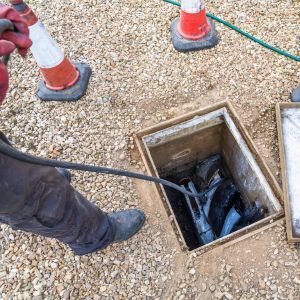From Floors to Septic Tanks: How Enzyme Cleaners Keep Working After Use
When most people think of cleaning products, they expect them to work only where they are applied—on a floor, a bench, or a sink. But enzyme cleaners are different. Their effectiveness doesn’t stop when the mop water is tipped down the drain. Instead, enzymes continue to work as they move through drains and even into septic tanks, creating ongoing benefits long after cleaning is finished.
How Enzymes Work on Floors and Surfaces
Enzyme cleaners are made from natural proteins that speed up the breakdown of organic matter. On floors and surfaces, they target common waste materials such as:
-
Grease and fats from kitchens
-
Food residues in dining areas
-
Soap scum and organic spills in bathrooms
By digesting these residues, enzymes provide a deeper, more natural clean than products that only mask stains or odours.
What Happens When Enzymes Enter Drains
The cleaning solution doesn’t lose its effectiveness once rinsed away. The enzymes carried in mop or rinse water continue working in drains, targeting the organic build-up that often leads to slow drainage or unpleasant smells. Instead of corroding or burning through clogs like harsh chemicals, enzymes safely digest fats, oils, and other organic materials.
This ongoing action means every cleaning cycle also contributes to cleaner, fresher drains. For further reading, see our article Why Enzyme Cleaners Are Essential for Healthy Septic Systems, which explains in more detail how enzymes support beneficial bacteria and improve long-term septic health.
How Enzymes Support Septic Tank Health
In septic systems, beneficial bacteria are essential for breaking down waste. Harsh chemical cleaners such as bleach or quaternary ammonium compounds (quats) can kill these microbes, weakening the system. Enzymes, on the other hand, enhance the bacterial process by:
-
Stimulating microbial activity
-
Breaking down solids into smaller, more manageable components
-
Reducing the build-up of scum layers
-
Helping to control odours naturally
Over time, this makes septic tanks more efficient and less prone to costly blockages or failures.
For more insight, see our related article: Stop Septic Tank Smells: Why Natural Septic Treatments Work Better, which explains how natural enzyme-based solutions reduce odours and why they work better than harsh chemicals in supporting septic system health.
Research on Enzymes in Septic Systems
A study by J. Diak and colleagues, published in Bioprocess & Biosystems Engineering (2012), explored the impact of enzyme additives on anaerobic digestion in septic systems and sludge treatment. Their findings showed that while enzymes did not dramatically improve performance under the specific laboratory conditions tested, the study highlighted that enzyme effectiveness depends heavily on factors like dosage, system design, and retention time. This research reinforces the idea that enzymes are best used as part of a consistent maintenance programme rather than a quick fix for severe blockages.
The Continuous Journey of Enzymes
The unique strength of enzyme cleaners lies in their extended activity. A single cleaning task in a kitchen, bathroom, or hallway sets off a chain of benefits:
-
Floor cleaning – Enzymes remove organic residues on surfaces.
-
Drain entry – Rinse water carries enzymes into the plumbing, reducing build-up.
-
Septic tank support – Enzymes continue to aid beneficial bacteria, keeping the system healthy.
This journey illustrates why enzyme cleaners are more than surface solutions—they are part of a larger cycle of hygiene and waste management.
FAQ – Enzymes Beyond Cleaning
Do enzymes still work after being rinsed away?
Yes. They remain active in drains and septic tanks, breaking down organic waste as long as conditions are suitable.
How do they help with odour control?
By targeting the organic matter that produces smells, rather than masking odours with perfumes.
Can enzymes replace chemicals entirely?
Not in every situation. Disinfectants may still be needed where sterilisation is required, but enzymes are ideal for waste breakdown and ongoing maintenance.
Are they safe for septic systems?
Yes. Enzymes support microbial health instead of destroying it, making them an excellent choice for septic care.
Final Thoughts
Enzyme cleaners stand out because they keep working beyond the initial cleaning task. From floors to drains and into septic tanks, they create a chain reaction of benefits—cleaner surfaces, clearer drains, and healthier septic systems. Their natural, biodegradable action makes them both effective and environmentally responsible.
At Insinc Products, we provide a range of enzyme-based cleaning solutions that deliver results not only where you clean but also throughout your plumbing and septic systems. Contact us today to find out how enzymes can become a long-term part of your hygiene strategy.
Posted: Monday 22 September 2025


